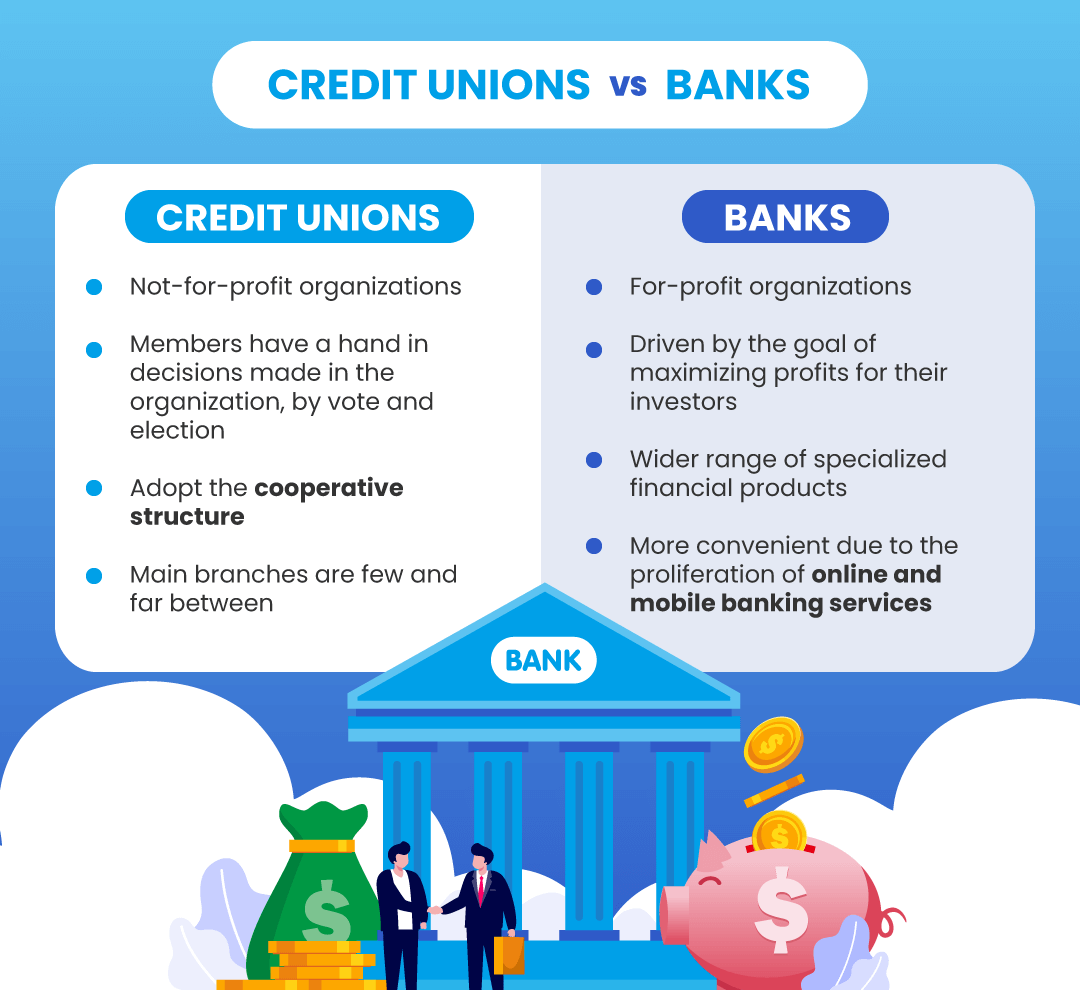Federal Credit Union: Trusted and Protected Financial in Wyoming
Federal Credit Union: Trusted and Protected Financial in Wyoming
Blog Article
The Ultimate Overview to Recognizing Cooperative Credit Union
Credit report unions stand as unique financial entities, rooted in principles of mutual support and member-driven operations. As we navigate with the ins and outs of credit unions, an insightful journey waits for to shed light on these member-focused institutions and how they vary from traditional financial institutions.
What Are Lending Institution?
Cooperative credit union are member-owned banks that supply an array of financial services to their members. Unlike traditional banks, cooperative credit union run as not-for-profit companies, implying their primary emphasis gets on serving their members instead of maximizing earnings. Participants of a lending institution usually share a common bond, such as benefiting the very same employer, coming from the exact same community, or being part of the same organization.
Among the crucial benefits of credit score unions is that they typically offer higher interest prices on cost savings accounts and lower passion rates on lendings contrasted to banks. This is due to the fact that lending institution are structured to benefit their participants directly, permitting them to pass on their revenues in the form of far better rates and less fees. Furthermore, cooperative credit union are recognized for their customized consumer service, as they focus on constructing connections with their participants to understand their special economic needs and objectives.
Background and Evolution of Lending Institution

The origins of member-owned monetary cooperatives, understood today as cooperative credit union, trace back to a time when neighborhoods sought alternatives to typical financial organizations. The concept of credit scores unions come from the 19th century in Europe, with Friedrich Wilhelm Raiffeisen often attributed as the pioneer of the participating financial movement (Cheyenne Federal Credit Union). Raiffeisen started the very first recognized credit rating union in Germany in the mid-1800s, stressing neighborhood support and self-help concepts
The evolution of cooperative credit union proceeded in North America, where Alphonse Desjardins developed the first credit union in copyright in 1900. Soon after, in 1909, the first united state cooperative credit union was created in New Hampshire by a group of Franco-American immigrants. These very early credit history unions run on the essential concepts of mutual assistance, autonomous control, and member possession.
Over time, lending institution have expanded in popularity worldwide because of their not-for-profit framework, focus on offering participants, and providing affordable monetary services and products. Today, lending institution play an essential role in the monetary market, providing accessible and community-oriented banking alternatives for organizations and people alike.
Membership and Qualification Requirements
Membership at a debt union is typically limited to people fulfilling specific qualification standards based upon the institution's starting principles and regulative demands. These requirements commonly consist of variables such as geographical area, work standing, subscription in specific companies, or affiliation with particular groups (Cheyenne Federal Credit Union). Cooperative credit union are known for their community-oriented approach, which is mirrored in their subscription demands. As an example, some credit report unions might only serve people that live or function in a particular area, while others might be customized to workers of a specific company or participants of a certain association.
In addition, lending institution are structured as not-for-profit organizations, suggesting that their main objective is to serve their participants as opposed to produce earnings for investors. This emphasis on member solution frequently translates into even more customized focus, reduced charges, and affordable interest rates on lendings and financial savings accounts. By meeting the eligibility requirements and coming to be a member of a cooperative credit union, people can access a variety of financial product or services customized to their details needs.
Services and Products Provided
One of the essential facets that sets credit scores unions apart is the varied variety of economic services and products they use to their members. Credit unions normally provide typical financial services such as savings and examining accounts, lendings, and credit cards.
Additionally, credit rating unions frequently give hassle-free online and mobile banking options for participants to quickly handle their funds. They may use rewards such as shared branching, enabling participants to access their accounts at other lending institution across the country. Some lending institution also give insurance policy items like life, home, and vehicle insurance to assist participants protect their assets and loved ones.
Along with financial services, cooperative credit union often participate in community outreach programs and financial education campaigns to sustain their participants in attaining their economic goals.
Advantages of Banking With Credit Score Unions
When taking into consideration financial organizations, discovering the benefits of banking with debt unions exposes one-of-a-kind advantages for participants seeking customized solution and affordable rates. Unlike big banks, credit score unions Wyoming Credit Union are member-owned and focus on structure solid relationships with their members. Generally, banking with a credit score union can give a more personalized, cost-effective, and member-centric financial experience.
Final Thought

Credit scores unions are member-owned monetary establishments that supply a range of banking services to their members. The idea of credit report unions stem in the 19th century in Europe, with Friedrich Wilhelm Raiffeisen often credited as the pioneer of the cooperative banking movement.The evolution of credit report unions proceeded in North America, where Alphonse Desjardins developed the very first credit score union in copyright in 1900. Credit scores unions usually supply standard financial solutions such as financial savings and inspecting accounts, finances, and debt cards.When taking into consideration economic establishments, checking out the advantages of financial with credit rating unions reveals distinct benefits for participants looking for individualized service and competitive prices.
Report this page